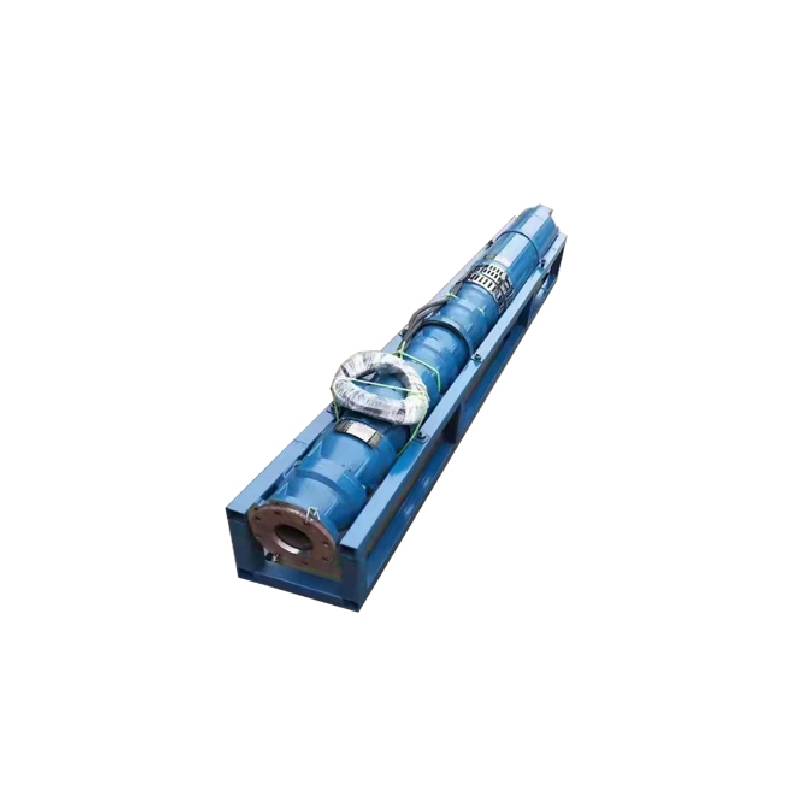Aug . 06, 2024 09:59 Back to list
Exploring the Benefits and Applications of Bore Pumps in Modern Water Management Systems
The Significance and Functionality of Bore Pumps
Bore pumps, also known as borehole pumps or submersible pumps, play a crucial role in various sectors, including agriculture, municipal water supply, and industrial applications. These pumps are designed to lift water from deep underground sources, effectively tapping into aquifers and providing a reliable water supply where surface water is scarce or unreliable. Their efficiency and reliability make them essential tools in modern water management systems.
How Bore Pumps Work
The fundamental principle of a bore pump is straightforward. These pumps are typically installed in wells or boreholes where groundwater is accessed. When the pump is submerged in water, it works through a series of stages, utilizing centrifugal force to lift water to the surface. The pump is connected to an electric motor, which drives an impeller, creating a pressure difference that pushes water upward through a pipeline to the desired location.
One of the defining features of bore pumps is their ability to operate at substantial depths. Unlike standard surface pumps, which draw water from shallow sources, bore pumps can function efficiently at depths of hundreds of meters. This capability allows them to access water that would otherwise be unreachable.
Different Types of Bore Pumps
There are various types of bore pumps, each designed with specific applications in mind
. The most common types include1. Submersible Pumps These are designed to be fully submerged in water and are ideal for deep wells. They are known for their efficiency and are capable of moving large volumes of water quickly.
bore pump

2. Jet Pumps While not always fully submerged, jet pumps can lift water from moderate depths using a combination of suction and jet propulsion. They are typically used in shallower applications.
3. Solar-Powered Pumps As sustainability becomes increasingly important, solar-powered bore pumps have emerged as a viable option, especially in remote or off-grid locations. They harness solar energy to operate efficiently without relying on the electrical grid.
Applications of Bore Pumps
Bore pumps have a wide range of applications. One of the most vital uses is in agriculture, where they provide irrigation water to crops, ensuring food production even in arid conditions. They enable farmers to access groundwater effectively, improving yields and optimizing water usage.
In urban areas, bore pumps are often employed in municipal water supply systems. They help municipalities manage their water resources, providing clean drinking water to residents while reducing dependency on surface water sources that may be contaminated or fluctuating.
Additionally, bore pumps are essential for industrial applications, where they provide water for cooling systems, production processes, and other operations that require significant water volumes. Their reliability is crucial for maintaining continuous production and operational efficiency.
Conclusion
In conclusion, bore pumps represent a pivotal advancement in water extraction technology, enabling efficient access to groundwater that supports various vital sectors of society. Their design and functionality make them indispensable tools in both rural and urban areas. As the demand for clean water continues to rise globally, the role of bore pumps will only become more significant, promoting sustainable water management and ensuring that communities can thrive in harmony with their natural water resources. With ongoing technological advancements, bore pumps will continue to adapt and improve, cementing their place as a cornerstone of modern water supply systems.
-
Submersible Water Pump: The Efficient 'Power Pioneer' of the Underwater World
NewsJul.01,2025
-
Submersible Pond Pump: The Hidden Guardian of Water Landscape Ecology
NewsJul.01,2025
-
Stainless Well Pump: A Reliable and Durable Pumping Main Force
NewsJul.01,2025
-
Stainless Steel Submersible Pump: An Efficient and Versatile Tool for Underwater Operations
NewsJul.01,2025
-
Deep Well Submersible Pump: An Efficient 'Sucker' of Groundwater Sources
NewsJul.01,2025
-
Deep Water Well Pump: An Efficient 'Sucker' of Groundwater Sources
NewsJul.01,2025
-
 Submersible Water Pump: The Efficient 'Power Pioneer' of the Underwater WorldIn the field of hydraulic equipment, the Submersible Water Pump has become the core equipment for underwater operations and water resource transportation due to its unique design and excellent performance.Detail
Submersible Water Pump: The Efficient 'Power Pioneer' of the Underwater WorldIn the field of hydraulic equipment, the Submersible Water Pump has become the core equipment for underwater operations and water resource transportation due to its unique design and excellent performance.Detail -
 Submersible Pond Pump: The Hidden Guardian of Water Landscape EcologyIn courtyard landscapes, ecological ponds, and even small-scale water conservancy projects, there is a silent yet indispensable equipment - the Submersible Pond Pump.Detail
Submersible Pond Pump: The Hidden Guardian of Water Landscape EcologyIn courtyard landscapes, ecological ponds, and even small-scale water conservancy projects, there is a silent yet indispensable equipment - the Submersible Pond Pump.Detail -
 Stainless Well Pump: A Reliable and Durable Pumping Main ForceIn the field of water resource transportation, Stainless Well Pump has become the core equipment for various pumping scenarios with its excellent performance and reliable quality.Detail
Stainless Well Pump: A Reliable and Durable Pumping Main ForceIn the field of water resource transportation, Stainless Well Pump has become the core equipment for various pumping scenarios with its excellent performance and reliable quality.Detail
